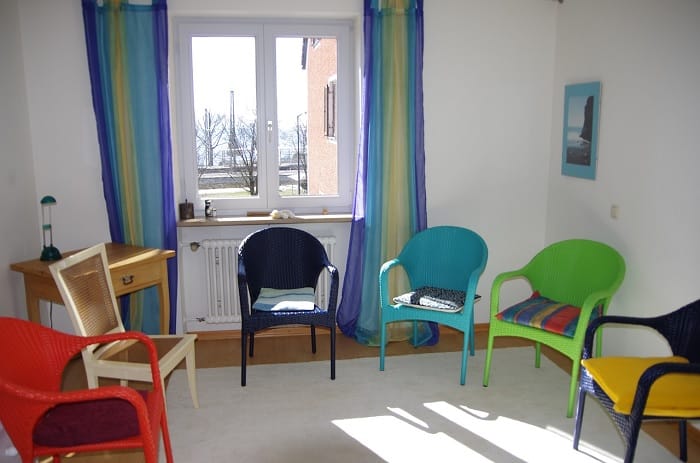If you are living with an addiction to drugs and alcohol in the West Midlands or near the West Midlands, it’s not easy to look yourself in the face and admit that you have a problem.
Reflecting on your experiences with drugs and alcohol may cause significant pain and distress, and so it’s only natural that you will resist any temptation to put these experiences under the ‘spotlight’.
Rehab 4 Addiction is staffed by people who have fought drug and alcohol addiction in the past and won.
This means we know what you are going through.
With Rehab 4 Addiction, seeking out help for your addiction could not be simpler. Rehab 4 Addiction offers access to alcohol and drug addiction treatment services across the West Midlands, including in Birmingham, Coventry, Wolverhampton, Solihull, Solihull, Walsall, West Bromwich and Dudley.
To access drug and alcohol rehab in the West Midlands as easily as possible, get in touch with Rehab 4 Addiction today on 0800 140 4690.

When you contact us, we help you recognise the various signs of drug and alcohol addictions. We also practically and psychologically prepare you for treatment at a drug and alcohol rehab in the West Midlands.
We inform you about the various treatment options that exist in the West Midlands and near the West Midlands, and we then answer any questions you may have regarding these options.
Above all, we assist you in coming to terms with your addiction. We also help you defeat any negative thinking you may hold about yourself and the situation you have found yourself in.
For more information about the various options for drug and acohol rehab in the West Midlands, please call our 24-Hour Helpline: 0800 140 4690

Fortunately, there exists an abundance of options for drug and alcohol rehab in the West Midlands. This includes residential rehab and an assortment of outpatient options. Outpatient treatment is generally conducted by a licenced therapist once or twice a week.
Rehab 4 Addiction advocates the abstinence model of drug and alcohol recovery. This means you must be committed to the idea of never returning to drugs and alcohol.
To return to drinking or drug use will threaten your entire existence, including your life and your relationships with loved ones.
You must be committed to the idea that you cannot control your drug or alcohol use and that the only true way to control your addiction is to never take these substances ever again.
Over the last decade, alcoholism and drug addiction instances have increased in the West Midlands.
Unfortunately, this has coincided with an overall reduction in state spending, particularly in the healthcare and social care sector.
Cuts in publicly-funded drug and alcohol addiction treatment mean many people have to rely on the private sector for drug and alcohol treatment. Many of these people assume private treatment is beyond their financial means.
At Rehab 4 Addiction, we are here to tell you that this belief is wholly unfounded.
Fortunately, there are service providers for drug and alcohol addictions throughout the West Midlands to suit most budgets.
When you contact Rehab 4 Addiction, we will help you select a suitable drug and alcohol rehab in the West Midlands that suits your needs and your budget.
By far the worst decision you could possibly make would be to take no action whatsoever.
This is because addiction to drugs and alcohol is a progressive disease, and taking no action will ensure your condition will slowly but steadily deteriorate.
If your loved ones are voicing their concerns about your addiction, this is one sure sign that you need to take action.
Begin your recovery journey with the help of drug and alcohol rehab West Midlands today by calling us on 0800 140 4690

Unfortunately, denial is common among those who struggle with addiction. Individuals can often reject the need for rehab, and this can delay much-needed treatment.
It is essential, therefore, to establish who needs access to a drug and alcohol rehab in the West Midlands and what traits are synonymous with dangerous and unmanageable addiction.
An individual in the West Midlands needs to undergo drug & alcohol rehabilitation programme if they:
If you’re unsure whether or not you need the services of a drug and alcohol rehab in the West Midlands, give our team a call on 0800 140 4690

The effectiveness of an individual’s drug or alcohol addiction treatment often relies upon the suitability of the rehab programme selected for them.
Substance abuse (such as alcohol abuse and drug abuse) affects everyone differently, and so each case will require a slightly different approach to the process of recovery.
In order to improve the odds of treatment in the West Midlands being effective, the ASAM Criteria can be used.
This assessment is well known for taking into consideration the biological, psychological, and social aspects of an individual’s situation and building a picture as to what kind of help would be most suitable for them.
In order to provide this assistance, the ASAM assessment considers the following 6 dimensions:
When attempting to determine a suitable drug and alcohol rehab in the West Midlands or near the West Midlands for an individual struggling with addiction, it is essential to first know how serious their condition is.
Drug and alcohol abuse can range in how much immediate danger it poses so assessing each case is the first step towards identifying an effective approach to drug and alcohol recovery.
To analyse addiction, the Diagnostic and Statistical Manual of Mental Disorders, Fifth Edition, (DSM-5) criteria are used.
In this assessment, the symptoms an individual is experiencing are counted and the severity of the addiction is quantified via three stages.
If there are two or three of the following symptoms, the substance is considered to be mild. If there are four or five, then it is moderate.
When there are five or more, it is taken to be severe and can be labelled as an addiction.
The symptoms include:
To begin the admissions process at a drug and alcohol rehab in the West Midlands, call our team today on 0800 140 4690

Alcoholism is a type of addiction that can severely threaten the health and well-being of the individuals with which it afflicts.
It is one of the substances which can kill if withdrawal is not handled correctly, so being able to assess the severity of an individual’s alcohol use is very important to any drug and alcohol rehab in the West Midlands.
Developed by the World Health Organisation (WHO), Alcohol Use Disorder Identification Tests (AUDITs) are assessments that can be used to generate an idea as to how serious an individual’s dependency on alcohol is.
They involve asking 10 questions that look to each clarify whether an individual is suffering from a certain effect of the condition.
AUDITs function on a points system whereby the response to each question has an associated number.
After all the questions are answered, the scores of each answer are tallied up to determine the results. A score of 13 or more indicates alcohol dependency.
The initial few questions look to inquire as to what an individual’s alcohol intake looks like. They relate to how many drinks an individual tends to have per day or how often an individual tends to consume multiple drinks in one session throughout a week.
The middle of the test concerns itself with an individual’s dependency on alcohol or how reliant they are on its regular consumption. Questions centre around an individual’s ability to function without alcohol, whether an individual can stop drinking once they have started, and how long they tend to go between drinking sessions.
Finally, the test focuses on what effects an individual is experiencing due to their alcohol use. This can consider the nature of the effects – including physical, psychological, and social symptoms – and how severe and frequent they are.
This section of the test can also touch on whether the friends or family of an individual have voiced concerns about their alcoholism.
If you think you need the help of an alcohol rehab in the West Midlands, give our team a call today on 0800 140 4690

Before drug and alcohol rehab in the West Midlands can begin, many individuals can be resistant to the process of a drug and alcohol recovery programme.
Doubt and denial can cause them to delay or not even consider entering a drug and alcohol rehab in the West Midlands or near the West Midlands, and this can allow the symptoms that they are experiencing to worsen.
In order to help with this, family and friends can conduct an intervention, an event that looks to bring an individual’s nearest and dearest together to support their pursual of treatment.
It usually involves attendees expressing why they are worried about the addiction and what they are willing to do to help the situation.
The event can also be monitored by a professional interventionist to ensure that dialogue remains positive and supportive.
This professional will also be able to recommend relevant treatment at a drug and alcohol rehab in the West Midlands.

Community Reinforcement And Family Training (CRAFT) is a brand of intervention that looks to encourage an individual away from substance use via a reward system.
Using positive reinforcement, CRAFT looks to reward individuals when they engage in healthier behaviours.
This can involve doing something nice for them if they:
In order to make this method effective, CRAFT involves a corresponding lack of reward when an individual perpetuates their addictive cycles of behaviour.
When they are experiencing the negative effects of their behaviour, they are left to go through them so that they learn the consequences of their behaviour.
To make the process more effective, it can also help to bring in a CRAFT therapist who can ensure that the positive reinforcement is executed in a way that will be helpful.
For guidance hosting an intervention in order to convince a loved one to attend drug and alcohol rehab in the West Midlands, call our team today on 0800 140 4690

The price of alcohol & drug addiction treatment in the West Midlands varies depending on the kind of treatment programme an individual enrols on, as well as the specific rehab facility they choose.
The general costs are as follows:
For an answer specific to your needs for a drug and alcohol rehab in the West Midlands, call us today on 0800 140 4690

Before treatment can begin, an individual must decide what kind of rehab programme in the West Midlands they wish to enrol in.
There are a variety of options out there, of course, but the suitability of these different options will need to be assessed on a case-by-case basis.
In the broadest terms, individuals have a choice between NHS or private drug and alcohol rehab in the West Midlands.
Each has its own benefits and drawbacks, so it is important for each person to see which kind of help they would personally benefit from the most.
For help and guidance choosing between private and NHS drug and alcohol rehab in the West Midlands, call our team on 0800 140 4690

Below we’ve listed the pros and the cons of opting for council-funded drug and alcohol rehab programmes, charity-run drug and alcohol addiction treatment services and other community detoxification and treatment schemes in the West Midlands.

Below we’ve listed the pros and the cons of opting in for private rehab programmes in the West Midlands.
To begin your journey towards recovery, whether at a private or NHS drug and alcohol rehabilitation centre in the West Midlands, call us today on 0800 140 4690

In most cases, participating in drug and alcohol rehab in the West Midlands will require individuals to take time away from their careers and families in order to properly dedicate themselves to their drug or alcohol recovery programme.
Arranging this with partners and colleagues is not easy, so it can help to know exactly how long an individual can expect to need in order to properly engage with drug and alcohol rehab in the West Midlands.
While some recovery programs offer 7-day alcohol & drug detox services, it is recommended that individuals undertake a 28-day recovery program.
There are factors, however, that must be considered which may increase treatment length.
Such factors include:
Learn more about how long your stay at a drug and alcohol rehab centre in the West Midlands could last with a call to our team on 0800 140 4690

Quitting an addiction is an incredibly difficult process and attempting it alone can cause many complications.
Withdrawal from drugs or alcohol can spark a range of uncomfortable and sometimes dangerous symptoms, so it is advised that individuals seek help when it comes to their addiction recovery.
But what help is available in the West Midlands?
For many, stopping substance use in the first instance is one of the biggest obstacles when it comes to overcoming addiction.
Withdrawal symptoms are frequently too much for many to bear with, and so sustaining substance use and being comfortable is far easier than withstanding the initial difficulties of sobriety.
In order to help with this initial difficulty, individuals can engage with Librium detox, a form of home treatment available in the West Midlands.
This looks to help manage the immediate withdrawal symptoms that prevent them from stopping their substance use.
With this treatment, a medical professional will arrange for individuals to receive deliveries of Librium, a benzodiazepine that helps reduce the impact of withdrawal symptoms.
By taking these tablets, individuals can gain relief from the symptoms they experience within the initial few days of sobriety, and this can massively improve their ability to avoid relapse.
The aim of this treatment is to have individuals become sober after 10 days, and the progress of each case will be monitored via meetings with a medical professional.
Begin your recovery journey at an alcohol rehab in the West Midlands today by calling us on 0800 140 4690

While drug and alcohol detox is an incredibly important part of time at drug and alcohol recovery centres, it is not enough by itself.
The underlying causes of addiction will still remain following an alcohol or drug detox, and they will always increase the odds of relapse as long as they are left unaddressed.
For this reason, the medical detox process is typically followed by a range of therapeutic activities that look to tackle the roots of why an individual is motivated to consume drugs or alcohol to the extent that they do.
At a drug and alcohol rehabilitation centre in the West Midlands and near the West Midlands, this treatment tends to be conducted across a 3-week period, and the specific activities used will be tailored to the needs of each individual in order to try and stick to this time frame.
Potential therapy methods can include:
Learn more about the many ways a drug and alcohol rehab in the West Midlands can help you by calling our team on 0800 140 4690

Alcohol is one of the most dangerous substances to undergo a medical detox from because its associated withdrawal symptoms are significantly lethal.
It is one of the few substances that can kill if withdrawal is not handled correctly, so it is important for those who are considering detoxing outside of rehabs or dedicated drug and alcohol detox clinics to understand what the risks are when it comes to detoxing alone.
It is recommended that individuals struggling with alcoholism in the West Midlands seek support from a rehab programme.
Not doing so can leave them vulnerable to the following risks: [1]
To recover from alcohol addiction in the care of the best alcohol rehab centre in the West Midlands, call us today on 0800 140 4690

It is recommended that those who need alcohol and drug addiction treatment enter a drug & alcohol rehabilitation programme within dedicated recovery centres, but residential rehab clinics are not for everyone.
Work and family commitments can be difficult to get out of, so it can be helpful for individuals to learn what other options are available to them.
In this style of treatment, individuals stop their substance use with the support of medications that are delivered to their house, rather than recovering in specialist drug and alcohol detox clinics or rehabs.
Librium is one of the most common options, and this benzodiazepine works to limit the impact of withdrawal so that individuals can resist the urge to use it again.
The goal of this treatment is to allow individuals to safely and effectively overcome the initial obstacles of withdrawal and then be able to continue on with their recovery journey.
Meetings with medical professionals in the West Midlands are designed to ensure that this is achieved and that an individual’s progress is safe.
While providing individuals with the ability to continue working and seeing their family, a home detox procedure also provides the benefit of being a cheaper alternative to residential alcohol & drug rehab.
Due to the lack of supervision, this method of treatment is only suitable for those who consume relatively low amounts of a substance and are not likely to be at serious risk by their withdrawal.
For example, a home detox procedure will only be suitable for individuals who consume less than 30 units of alcohol per day. Any more than this will need the treatment of a monitored alcohol detox clinic for the sake of safety.
Think a home detox procedure is right for you? Find out by calling our team today on 0800 140 4690
Alternatively, individuals have the option of self-detox, which is completely free.
Significantly different to home detox, this method involves an individual trying to wean themselves from their addiction without any support at all.
This method is rarely effective and the associated risks that come with it mean that self-detox is best avoided.
While it does not cost anything, willpower is rarely enough for an individual to overcome withdrawal and the health complications caused can be life-threatening.
Both a home medical detox and treatment at a drug and alcohol rehab clinic are preferable to an attempt at self-detoxing, as these treatments involve full medical support and monitoring to help make recovery as safe and effective as possible.
For more information about the many treatment options available to you, both in the wider community and at a dedicated drug and alcohol rehab in the West Midlands, call us on 0800 140 4690

When cocaine addiction strikes, it is a psychological dependency that individuals develop.
They believe that they need to continue using the drug in order to function at work or socialise, and it is this mindset which spurs them on to continue using.
Due to this primarily mental basis for cocaine addiction, there is no such procedure as ‘cocaine detox’ like there is with substances like alcohol.
Instead, the condition is treated via a range of therapeutic activities that look to work through the underlying reasons why an individual feels the need to take cocaine.
These therapy sessions can take a variety of different forms, including:
Beat your cocaine addiction today at a drug and alcohol rehab in the West Midlands – call us on 0800 140 4690

Heroin is a dangerous substance to become addicted to. Much like alcohol, it has the ability to trigger physical dependency, and this means that treatment requires both a physical and psychological process of weaning.
In order to wean the body from heroin dependency, a careful detox procedure is required.
The withdrawal brought on by stopping consumption can cause the body to react in dangerous ways, so weaning must be conducted slowly and with the relevant medicinal support.
Detox involves a gradual tapering-off of substance use, allowing the body to gradually adjust to sobriety, as well as the provision of benzodiazepines which reduce the effect of the triggered withdrawal.
Once an individual has undergone detox and is able to function with a degree of independence from their heroin use, the next step is to tackle their underlying motivations for sustaining substance abuse.
While detox is important, it is not enough of a solution in isolation.
An individual whose inner problems are not addressed will only feel the desire to use heroin again once they leave treatment, and this will then leave the possibility of developing physical dependency again on the table.
In order to do this, a drug and alcohol rehab centre in the West Midlands involves individuals participating in a wide selection of therapies.
Beat your heroin addiction today at a drug and alcohol rehab in the West Midlands – call us on 0800 140 4690

When individuals take cannabis, a chemical known as THC is released into their brains.
Along with the effects of making an individual drowsier and increasing their blood pressure, it has the ability to make the brain feel intense pleasure, and for this reason, many individuals develop an addiction to cannabis.
In terms of physical dependency, cannabis does not cause the body to become addicted.
Instead, the way that it rewards the brain causes individuals to think that they need to consume it in order to be relaxed or confident, and so they develop a psychological reliance on it.
To treat this, therapy must be used to untangle this perception that cannabis is necessary for an individual’s everyday functioning.
A variety of activities can be used, all of which look to help work through an individual’s underlying mental health problems and provide them with better ways of handling them.
A good example of this treatment is Cognitive Behavioural Therapy (CBT), a method that directly isolates specific situations that consistently push an individual towards cannabis use and helps in the development of methods for coping with the stress or anxiety caused.
Beat your cannabis addiction today at a drug and alcohol rehab in the West Midlands – call us on 0800 140 4690

Therapy is an integral part of the rehab process, but that does not mean that all individuals will undergo the same activities while working through their addiction.
There is a range of therapies that can be used, depending on how suitable they are for an individual’s situation.
With addiction, it is often the case that individuals’ drug and alcohol abuse is triggered by certain situations which upset or unsettle them.
High-pressure situations at work might heighten their anxiety or arguments with a partner might cause them to feel more depressed, and so they feel the need to get ‘high’ in order to feel better.
In order to help individuals refrain from turning to substance abuse in these moments, CBT works to help identify what situations and what associated emotions are at fault.
A therapist will then help them develop more sustainable ways of managing these instances that do not rely on substance use.
For example, when work becomes stressful, individuals can develop the habit of practising breathing techniques or mindfulness in order to calm down.
Addiction is a condition that fuels itself on the emotional challenges of those that it afflicts.
Difficulties relating to the processing and understanding of emotions can push people towards the relaxing and soothing effects of drugs or alcohol, and the desire to sustain this feeling very often leads to addiction.
DBT is a kind of therapy that helps individuals work through the intense and challenging emotions they feel via thorough and productive conversations with a therapist.
Together they work through what emotions are lying at the heart of their addiction, make efforts to understand and (more importantly) accept them, and then practice new routines and techniques for managing them.
For example, an individual who experiences strong feelings of guilt can learn to accept them and then develop the habit of attending sessions with a guilt therapist who can provide prolonged support for their difficulties in managing emotions once rehab in the West Midlands has ended.
Treatment does not necessarily have to adopt a long-term format. Instead, it can also comprise of meetings or check-ups which look to offer support and advice as an individual’s recovery is ongoing.
This kind of therapy is known as brief intervention or ‘short-term counselling treatment’.
In meeting with a therapist on a frequent basis, individuals can benefit from advice and guidance that can steer their recovery in the right direction.
This can involve professionals offering tips as to how substance use can be better reduced or monitored, or it can look like regular check-ups which map how progress is going and what challenges can be learned from.
This form of care is designed to help those who are unable to engage with longer-form treatment, but it should be noted that it does not provide the same consistency when it comes to positive results as full-time rehab clinics in the West Midlands.
An important factor to consider in the drug and alcohol addiction treatment process is how willing an individual is to change.
It determines how well they will take to treat and how likely they will be to relapse once their time at a drug and alcohol rehab centre has ended, so it can be beneficial to focus on this in therapy.
Motivational interviewing looks to identify what hopes and goals an individual has in life and draw these ideas out.
Whether it is to do with their career, family, or social life, the goal is to help an individual understand what they want from life and understand that their goals are achievable if they become sober.
This method works well to dispel the disillusionment individuals can sometimes feel when it comes to treatment and help them see that the process of recovery is directly related to improving their chances of being healthy and achieving what they want in life.
To experience these therapies for yourself at a drug and alcohol rehab in the West Midlands, call us today on 0800 140 4690
There is a popular belief within the field of recovery that treating an individual as a whole being – addressing their overall wellbeing rather than specifically targeting the disease or condition they are suffering from – can have very positive results.
This is also believed to be true when it comes to treatment for alcohol and drug abuse.
Holistic therapies are used based on the principle that, by addressing the biological, nutritional, emotional, psychological, and social dimensions of an individual’s personality, their overall boost in health will improve their ability to get sober. [2]
There are a range of activities available at drug and alcohol rehabs in the West Midlands that can be used to achieve this aim.
These can include:

Therapists are very knowledgeable when it comes to the process of addiction recovery, but that does not mean that individuals can work with them in isolation.
In many instances, the words and insights of other individuals going through rehab can be immensely beneficial.
In group sessions, individuals can learn from one another.
Those further along in the process can share tips that have helped them make the progress they have, and those that are just starting can remind the more experienced individuals how much progress they have made.
Because each member of the group has gone through a similar ordeal, the contributions each person makes will be seriously considered by the group.
That is not to say that the advice of therapists is not listened to by individuals in rehab, but there is another level when it comes to taking advice that has actually worked for an individual.
In most cases, addiction works to isolate those who suffer from it. They feel alone in their emotions and experiences, and it is this sense of being alone that makes sustaining drug and alcohol abuse seem like such an appealing option.
One-on-one therapy, therefore, can be of great value because it can reduce this sense of feeling unheard and unseen.
By speaking with a therapist, individuals can open up about how they feel and how they see the world, and they can share things that they have not told anyone before.
Of course, willingness to open up will vary from person to person, but therapists will try and encourage open and honest dialogue.
This is done in hope that productively addressing the underlying problems triggering their addictive behaviour, individuals will find relief in this support and find that there are alternative ways of dealing with their issues.
Sometimes, the root of an individual’s addiction is not the sole product of their own behaviour.
Relationships and familial connections are massive factors when it comes to how we as humans develop and interact with the world around us, and the problems and conflicts that exist within our families can sometimes be to blame for an addiction developing.
This is on top of genetic factors and biological causes of addiction, such as the ongoing question of ‘Is alcoholism hereditary?’
Whether it is a family feud or a long-term estrangement, the effects of family life can mean that working with an individual alone will not get to the cause of their behaviour.
Family therapy – and any family recovery programme in general – looks to help with this by bringing siblings, parents, and partners into therapy to work out some of the ongoing problems.
The goal is that, by promoting positive dialogue between family members, therapy can allow existing problems to be put to bed and the prospect of future conflicts to be reduced via the encouragement of more open and healthy communication methods.
Many rehabs in the West Midlands use family therapy or implement a family recovery program as a core part of their addiction treatments.
When an individual struggles with co-dependency, they gain their sense of worth and self-image via unhealthy relationships with the people around them.
Controlling or pleasing a partner or friend takes top priority in their life, and this can sometimes cause addiction to develop.
For example, when an individual desperately seeks the approval of a partner who uses drugs or alcohol, they may feel inclined to do it themselves.
Not heeding the associated dangers, this can quickly turn into a dependency.
Co-dependency treatment, therefore, works to help individuals see and understand the dangers of these relationships.
More sustainable boundaries are drawn, and techniques of acknowledging when an unhealthy behaviour habit is developing are practised.
Within TSF, individuals pursue recovery via sessions that look to ingratiate them within a wider system of support and treatment.
In addition to helping them through their emotional and psychological obstacles, sessions encourage individuals to participate in self-help measures provided by the recovery community.
Every TSF treatment programme will set its own goals, but the consistent values that tend to underpin most include accepting that addiction is a condition that must be managed, accepting that recovery cannot be achieved alone and taking advantage of all that the rehab treatment programme has to offer.
In addition to helping an individual overcome their addiction, TSF programmes also increase the chances of individuals engaging and supporting these rehab treatment programmes in the future, helping new people beat their addiction.
Begin your journey towards sobriety at a drug and alcohol rehab in the West Midlands today by calling us on 0800 140 4690

Addiction is such a difficult condition to treat because it is often bound to another mental health condition.
The symptoms of depression, anxiety, trauma and a wide range of other mental health conditions can often be too difficult to deal with, and the soothing effects of drugs or alcohol can cause these substances to become a frequent part of an individual’s routine.
When addiction and another mental health condition occur at the same time, this is known as dual diagnosis.
It is essential that this is acknowledged during treatment because, while detoxification is a vital part of recovery, underlying complications which trigger negative behaviours will only spark addiction again in the future.
As a result, as a drug and alcohol rehab centre looks to address an individual’s physical and psychological dependency on a substance, it is of equal importance that their other mental health troubles are addressed so that addiction is not allowed to resurface once treatment has concluded.
The treatment for mental health received at a drug and alcohol rehab clinic will be just as professional and effective as the treatment received at a conventional mental health treatment hospital.
To learn more about how a drug and alcohol rehab centre in the West Midlands will support your mental health, call us today on 0800 140 4690

Overcoming initial cravings and gaining sobriety is a huge part of addiction rehab, but the work does not stop there.
It is also of great importance to work out a relapse prevention plan to ensure that the problem does not come back in the future once the support of rehab has ended.
Many treatment programmes end their schedule by working with individuals to develop relapse prevention plans.
These can involve a range of measures to prevent addiction from coming back, including [3]:
To find out more about how a drug and alcohol rehab in the West Midlands can help you avoid relapse for good, call us today on 0800 140 4690

Taking time away from everyday life and going into rehab is not something that everyone can easily do.
Commitments and responsibilities limit a lot of people’s options when it comes to treatment, so it can be of use to learn what alternative options are available in the West Midlands.
Of course, rehab is the most effective way of beating addiction, but the following options are also known to be effective in certain circumstances.
If you want to learn of the many effective alternatives to drug and alcohol rehab West Midlands, call us on 0800 140 4690
Alcoholics Anonymous [4] and Narcotics Anonymous [5] are organisations that look to bring people together who are struggling with alcohol or drug addiction and help them.
Individuals meet in regular sessions and discuss with one another what they have experienced and how they feel regarding their substance use, following the 12-step recovery model.
The structure of such meetings usually revolves around a prompt or idea introduced by the session leader, and the goal is for each attendee to speak freely about their difficulties, learn from one another, and leave feeling like they have gained something in their recovery.
Within these organisations, all members have ‘sponsors’ who personally support their addiction recovery.
The support that this close relationship offers and the camaraderie provided by the regular meetings is designed to help pull individuals out of their addictive tendencies and show them a new way of life.
There are many Alcoholics and Narcotics Anonymous support groups running throughout the West Midlands, alongside other specialist 12-step recovery model groups like Cocaine Anonymous. [7]
Similar to AA, SMART Recovery treatment [8] is meeting-based, but it looks to help individuals make progress via a series of steps.
Using a range of supportive and therapeutic activities, SMART meetings try to help individuals move away from their substance-dependent existence and instil in them a new sense of autonomy and control over their life.
The steps of the SMART process are:
An individual’s progress through SMART is not necessarily linear. They might make a few steps forward, and then one step back.
The goal of SMART in the West Midlands is not to execute a seamless and unproblematic recovery journey, but to help individuals be patient with the pursual of sobriety.
Learn more about this wide selection of alternatives to drug and alcohol rehab in the West Midlands by calling us on 0800 140 4690

With this option, individuals stay at home and undergo detox by themselves.
In order to support the addiction treatment process, they receive deliveries of benzodiazepines which reduce the impact of withdrawal.
Home detox is designed to provide individuals with a treatment that both helps them overcome their physical dependency on a substance and retain the freedom to work and see their family as they do so.
It is important to note, however, that this method does not tackle the psychological or emotional reasons for the addiction, and so home detox will need to be paired with addiction therapy in order to prevent relapse in the future.
Due to its remote nature, home detox is possible anywhere in the West Midlands.
Addiction does not only impact the individuals who personally take the drugs or alcohol.
Their family and loved ones can come under a lot of psychological and emotional duress as a result of the condition’s development, so this form of treatment can be of great help.
During Al-Anon meetings in the West Midlands, the family of addicted individuals are supported by meeting with and talking to others who are experiencing similar difficulties.
Coping mechanisms can be shared, and a sense of belonging can sprout from the bonds and relationships that come from these discussions.
By learning more about addiction and how to cope with it, family members immediately become better able to handle the challenges posed by their addicted loved ones and support them with their recovery.
A very flexible form of treatment, outpatient involves individuals meeting with an addiction specialist on regular occasions to discuss their recovery.
It provides support and gives individuals the freedom to organise their recovery around their other everyday responsibilities.
During these meetings, individuals get the chance to learn about the recovery process, gain advice and discuss the nature of addiction.
For example, individuals may be told to establish their motivations for getting sober and attending the treatment centre, giving them a core sense of reason for enduring withdrawal.
With routine meetings, the goal is for individuals to make enough psychological progress so that they can eventually get to a point where they are learning to maintain their sobriety rather than fend off their cravings.
Due to operating through local drug and alcohol services, this kind of treatment is available throughout the West Midlands.
Begin your journey towards recovery by calling us on 0800 140 4690

At Rehab 4 Addiction, we also assist the loved ones of people suffering from an addiction to drugs and alcohol.
Watching your loved one’s condition slowly deteriorate is highly disempowering.
However, we are here to coach you so that you may help your loved one navigate away from drug and alcohol addiction.
We achieve this by offering you a free interventionist service throughout Birmingham and the wider West Midlands area.
You are able to contact us today free on 0800 140 4690. The service we provide is utterly confidential and free.
Although many of the treatment options we recommend may involve a fee, we are also able to recommend free statutory and charity-run drug and alcohol services in the West Midlands.
All information you provide is held with the strictest confidence. Information is not passed onto individual treatment providers without your express authority.
Help your loved one find their path to recovery at drug and alcohol rehab West Midlands by calling us on 0800 140 4690

To book into a rehab clinic in the West Midlands or anywhere else, contact our helpline today on 0800 140 4690.
Rehab 4 Addiction offers a variety of drug and alcohol rehabs in the West Midlands, including Warwickshire, Shropshire, Herefordshire, Worcestershire and Birmingham, as well as UK addiction treatment in general.
This article was written by Boris Mackey. You can connect with Boris online at LinkedIn or X.com.
 Substance addiction, also referred to as Substance Use Disorder (SUD), is a chronic and relapsing brain disease that affects both physical and psychological functioning. It develops when repeated exposure to drugs or alcohol alters brain chemistry, particularly the reward and motivation systems, leading to compulsive substance use despite harmful c .... Read More
Substance addiction, also referred to as Substance Use Disorder (SUD), is a chronic and relapsing brain disease that affects both physical and psychological functioning. It develops when repeated exposure to drugs or alcohol alters brain chemistry, particularly the reward and motivation systems, leading to compulsive substance use despite harmful c .... Read More
 Addiction recovery is a deeply personal and individual journey. The decision to seek help for your drug or alcohol addiction and rebuild your life generally happens quietly, sometimes after years of struggle. But while recovery starts at an individual level, it’s rarely successful in isolation. Behind most long-term recovery stories is a time whe .... Read More
Addiction recovery is a deeply personal and individual journey. The decision to seek help for your drug or alcohol addiction and rebuild your life generally happens quietly, sometimes after years of struggle. But while recovery starts at an individual level, it’s rarely successful in isolation. Behind most long-term recovery stories is a time whe .... Read More